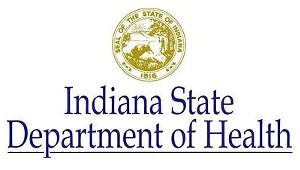
In the last month, 17 cases of hepatitis A have been confirmed statewide, including 11 in Clark and Floyd counties. Since Jan. 1, ISDH has confirmed 40 cases of hepatitis A statewide. Typically, fewer than 20 cases are confirmed each year in Indiana.
Many of the southern Indiana cases have involved inmates in the Clark County Jail. However, an elementary school in Clark County and a Bob Evans restaurant on State Street in New Albany also have been impacted.
“Hepatitis A is a highly contagious virus, and seeing this many cases in such a short timeframe is concerning,” said State Health Commissioner Kris Box, MD, FACOG. “We are working closely with our local partners to identify individuals who may have been exposed and to halt the transmission of disease.”
Hepatitis A is a viral infection of the liver. It is generally transmitted via fecal-oral routes or through consumption of contaminated food or water. Individuals can contract the virus through contact with:
- Foods prepared or served by an infected person(s)
- Stool or blood of an infected person(s)
- Inanimate objects that may have trace amounts of fecal material from hand contact
- Shared syringes or “works” used to inject drugs
Symptoms vary greatly, from severe to none at all, and may include loss of appetite, nausea, fatigue, fever, stomach ache, dark (cola) colored urine and light colored stools. Jaundice (yellowing of the eyes or skin) may appear a few days after the onset of these symptoms. Individuals can become ill 15 to 50 days after being exposed to the virus. Most people who get hepatitis A feel sick for several weeks, but they usually recover completely and do not have lasting liver damage. However, hospitalization and, in rare cases, death can occur.
Anyone who is exhibiting symptoms of hepatitis A should contact a healthcare provider immediately. Individuals with symptoms should not prepare or serve food to others and should wash hands thoroughly with soap and water before and after eating and after restroom use. Food handlers in schools, hospitals, restaurants and other facilities that serve large numbers of people are encouraged to get vaccinated, which is the best way to prevent hepatitis A.
Since 2014, Indiana has required that children be vaccinated for hepatitis A prior to the start of the school year. Therefore, children in kindergarten through grade 3 have likely been immunized against the disease. Older children and adults may not have been immunized and are urged to check their vaccination status.
Healthcare providers are encouraged to ask patients about risk factors for hepatitis A, which include:
- Travel to countries with high rates of hepatitis
- Men who have sex with men
- Injection drug use
- A diagnosis of chronic liver disease
- Direct contact with individuals who have hepatitis A
For a complete list of populations that might be at higher risk for hepatitis A, visit the Centers for Disease Control and Prevention (CDC) website. Additional information is online here.
Visit the Indiana State Department of Health website or follow on Twitter or Facebook.
at http://www.in.gov/isdh/ or follow us on Twitter at @StateHealthIN and on Facebook at www.facebook.com/isdh1.



